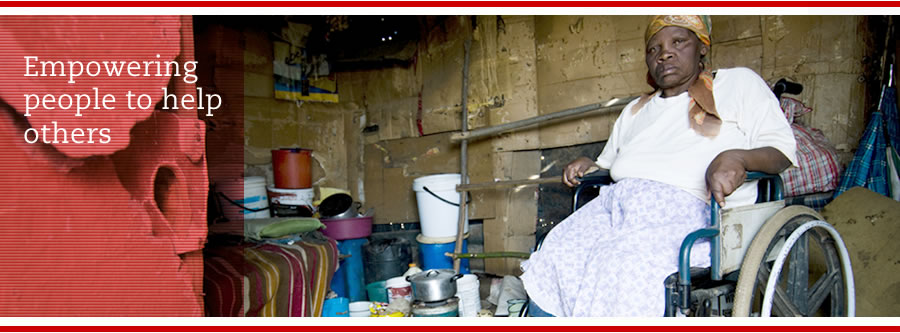Qualification Development and Maintenance a Key Focus for the HWSETA
The skills development landscape in South Africa is one that requires constant change and innovative thinking on the part of Sector Education Training Authorities (SETAs) to meet the needs of the sectors they serve. The HWSETA is no exception and it is this mindset that resulted in the establishment of the Qualification Development and Maintenance (QDM) sub-division in October 2013 to focus on this key area of responsibility for the HWSETA.
“The delivery of quality training in South Africa requires a combination of accredited training providers that are able to deliver excellent quality training content and material,” comments Champa Gopal, Qualification Development and Maintenance Manager for the HWSETA. “By assessing and maintaining quality in these two critical areas, learners in South Africa are assured that the training they receive will enable them to make a positive contribution to the skills pool in the health and social development sectors.”
Since its establishment, the QDM sub-division has approached the task at hand with zest and the hard work is paying off.
The QDM sub-division, in partnership with the National Department of Health (NDOH) and International Training Education Centre for Health (I-TECH), has been successful at registering the Occupational Qualification: Health Promotion Officer (Community Health Worker) SAQA ID 94597 in November 2014. This qualification replaces three community health work (CHW) legacy qualifications in the form of CHW levels 2, 3 and 4.
The HWSETA will not accredit private skills development providers (SDPs) for this newly registered occupational qualification and this is a function that will reside with the Quality Council for Trades Occupation (QCTO). Accreditation of providers by the QCTO will be dependent on the signing of a Memorandum of Understanding with the National Department of Health (NDOH) ensuring the learner has a designated workplace with a mentor during the time of study to obtain the required workplace experience.
Ms Gopal adds that the accreditation processes for legacy qualifications will remain with the HWSETA and this should not be confused with the accreditation processes outlined by QCTO for registered occupational qualifications.
The HWSETA conducted workshops nationally to inform its stakeholder base of this shift in accreditation and implementation processes for this new occupational qualification, as well as qualifications that will be developed in future.
To date the QCTO has successfully accredited twelve regional training centers attached to the NDOH. A partnership pilot training project for 900 learners in twelve regional training centres commenced in March 2015.
Whilst the HWSETA will not be responsible for the accreditation Skills Development Providers for this occupational qualification, it has received approval from the QCTO to be the Assessment Quality Partner (AQP). As an AQP, the HWSETA is responsible for setting up final external summative examinations, co-ordination of national examinations through approved assessment centers, as well as assessment and recommendation of learner certification to QCTO.
The examination process and logistical arrangements will be conducted through partnerships with Community of Experts (CEP’s) to ensure seamless quality processes are applied. The ETQA will timeously announce all examination logistics.
“This is an important milestone for the HWSETA and we believe that what we have learnt during this process will pave the way for the development of occupational qualifications that will replace the thirty three legacy qualifications that the HWSETA is mandated to quality assure,” adds Ms Gopal.
The HWSETA has submitted the occupational qualification, Social Auxiliary Work to QCTO for registration with SAQA and is currently awaiting the outcome of this occupational qualification.
Within the next five years the HWSETA intends having all legacy qualifications re-curriculated into qualifications that will translate into occupations and ultimately provide the youth of the country an opportunity to follow a career within the Health or Social Services Sector .
“The development of occupational qualifications that are relevant to the labour market underpins the activities of the QDM sub-division and it is this thinking that drives us to achieve targets that will positively impact the health and social development sectors in the country,” concludes Ms Gopal.






